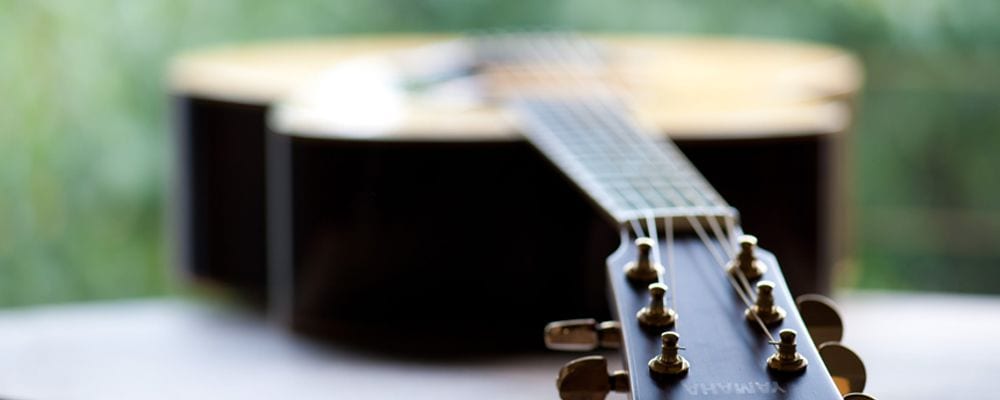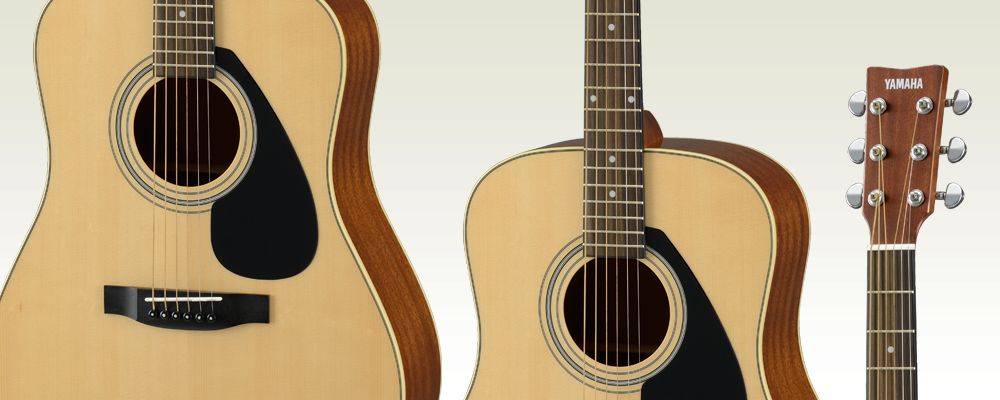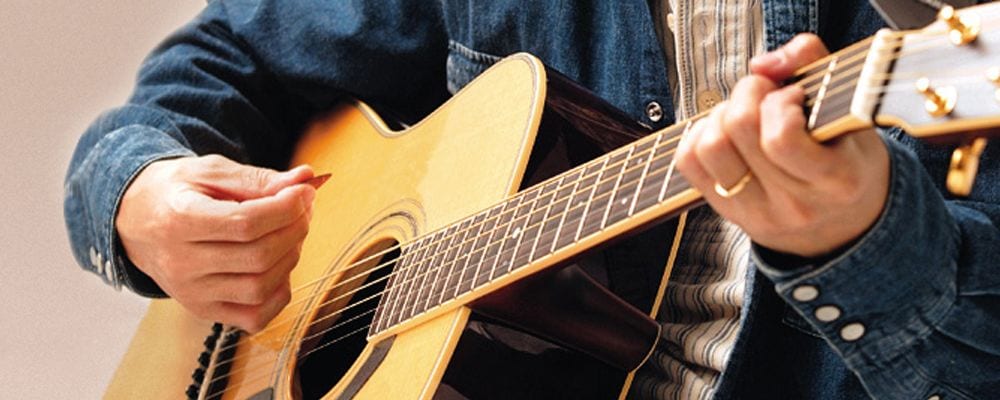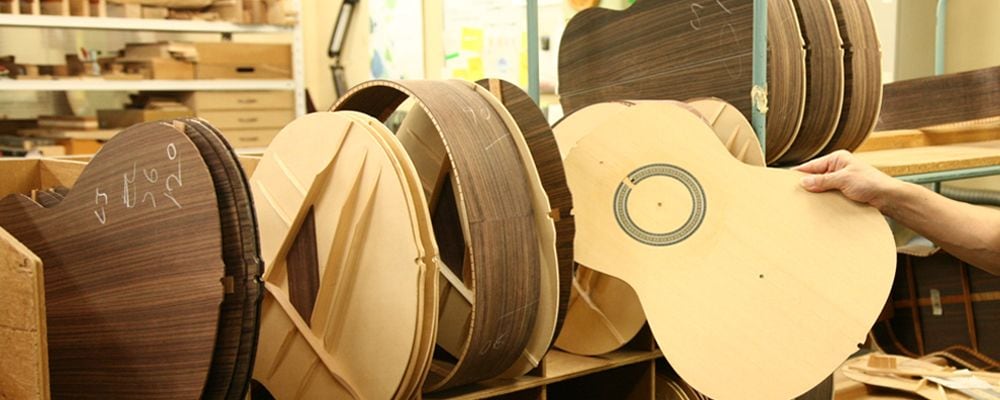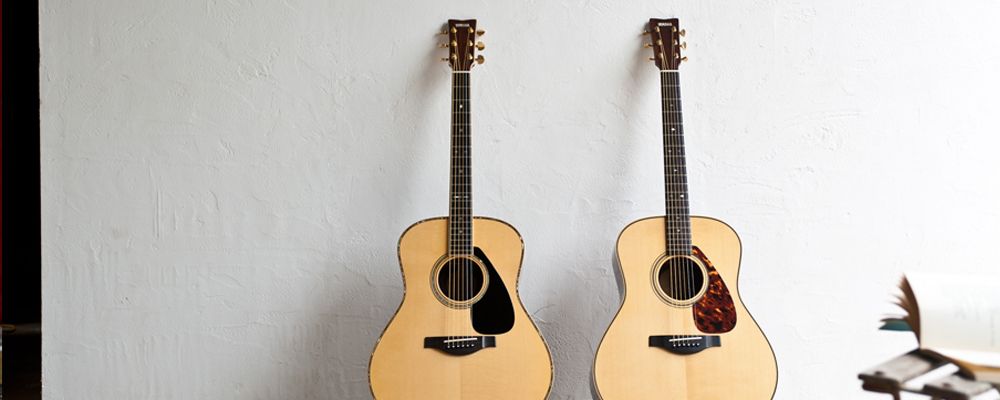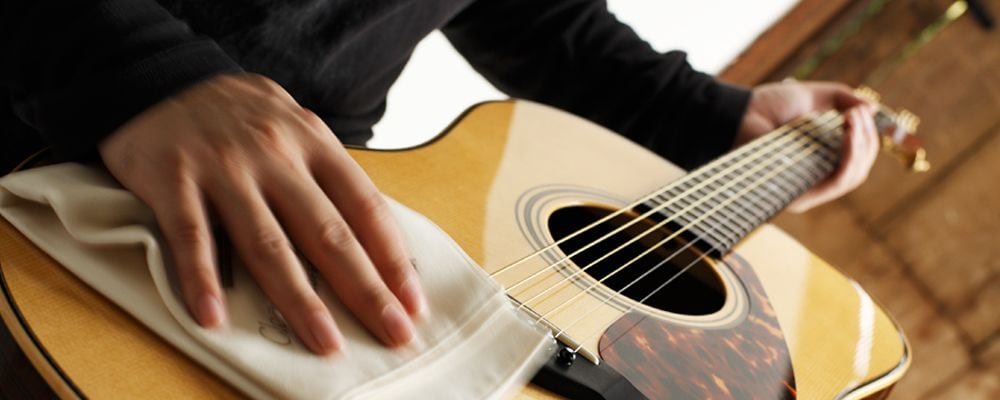Assembling the body
How the Acoustic Guitar is Made
How are the sides bent?
The sides, formed into gentle curves, connect the top and bottom just right. The wood used for the sides is soaked in warm water, heat is applied, and then the wood is bent into shape. It is then placed in a frame, blocks are attached, and the wood is left to harden. Blocks are wooden parts attached to the inside of the sides, where the neck and body join. Light, notched angle blocks are also attached ahead of time to both ends, so that the top and back fit snugly together.
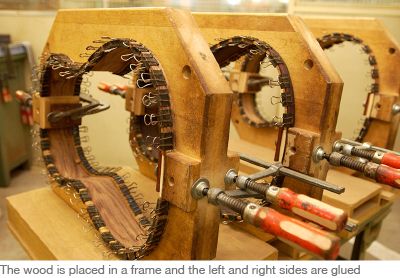
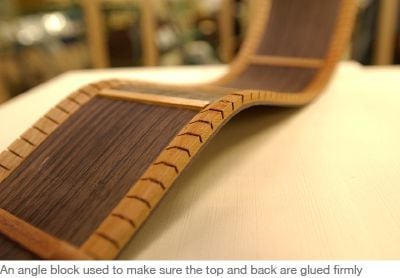
How the warping of the neck is tweaked
Blocks play a role in keeping the body and neck of a guitar held firmly together. A groove is carved into the upper portion (top side) of the block. An iron core with a diameter of around six millimeters is run from the neck through this groove.
Shaped into a gentle curve, this iron core provides support so that the neck does not warp, but at the same time is structured to allow the curve to be tweaked as needed. A hexagon nut is attached to the end of the iron rod. Tightening and loosening it adjusts the curve of the iron rod and modifies the warping of the neck. Generally, when the neck is pulled by the iron core into a concave "bow" shape, you should tighten the nut.
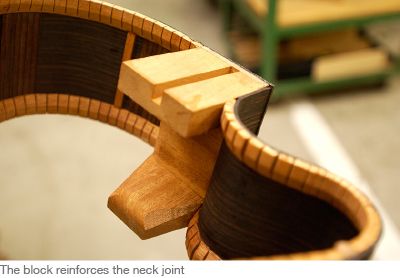
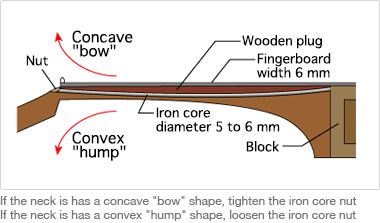
The top, back, and sides are all glued at the same time
The top, back, and sides are all glued at the same time
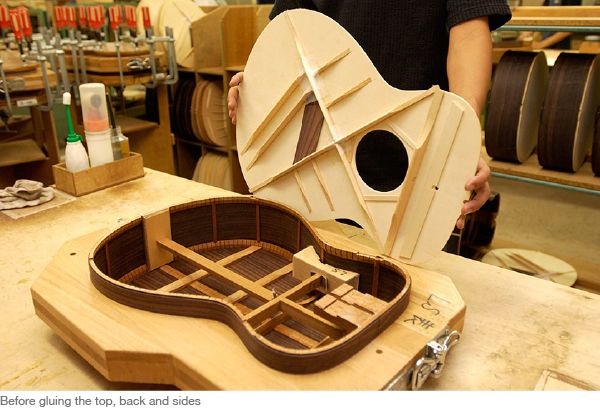
After the necessary treatment has been completed, the top, back, and sides are all placed inside a frame and glued at the same time. Each frame is tightened around the body, then it is left for anywhere from 90 to 120 minutes for the glue to harden.
The nail-free dovetail joint method
The nail-free dovetail joint method
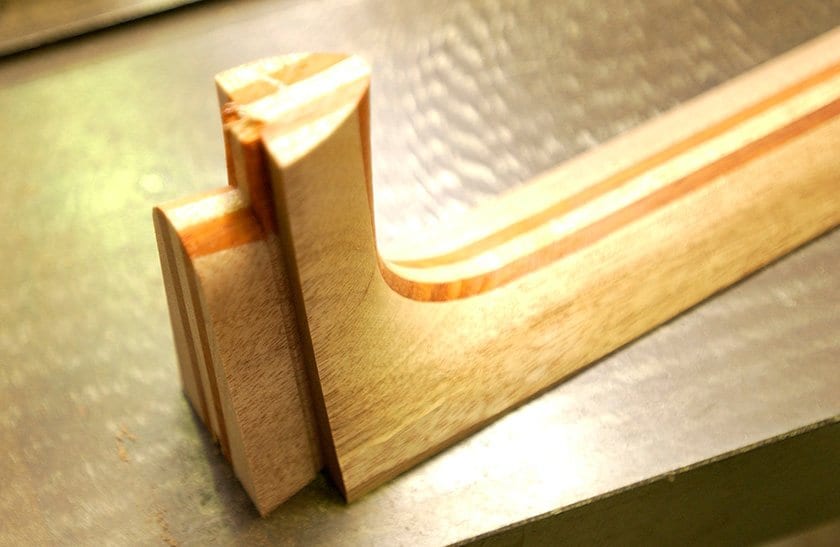
The body and neck are connected using what is called a dovetail joint. A dovetail joint is formed by fitting a trapezoidal bulge extending from the neck into a similarly shaped hole in the body, for a tight fit with little gap space. This is ideal for transmitting sound as the joint is made from surface to surface without using nails or the like. The name of the joint comes from the fact that the shape resembles the tail of a dove.

